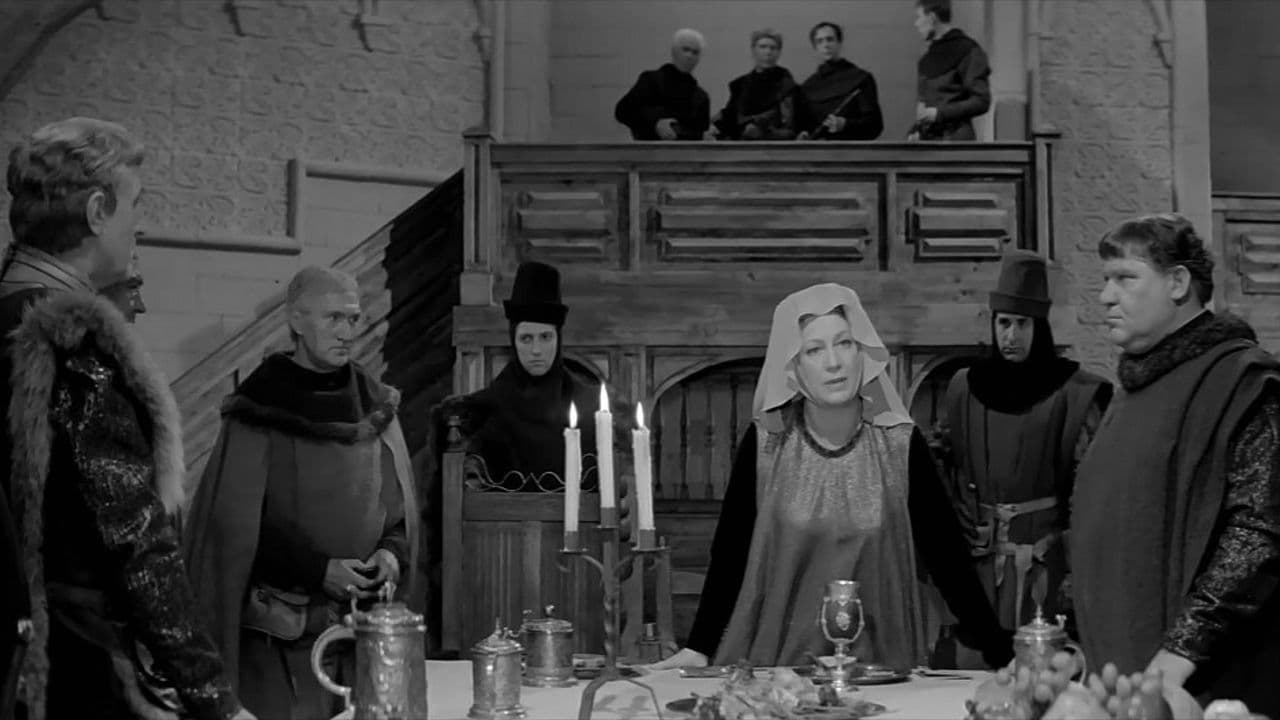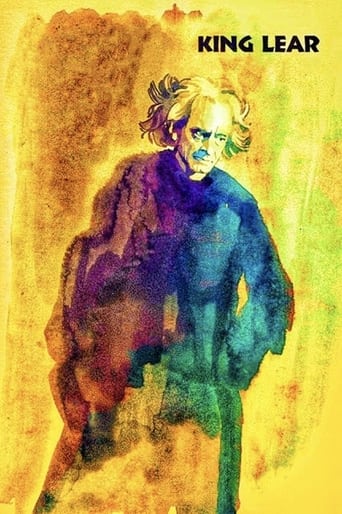



Sadly Over-hyped
While it doesn't offer any answers, it both thrills and makes you think.
View MoreAfter playing with our expectations, this turns out to be a very different sort of film.
View MoreActress is magnificent and exudes a hypnotic screen presence in this affecting drama.
View MoreThe "masterpiece of soviet cinema" turned out to be artificial and absurd all through its length. Boris Pasternak's translation of Shakespeare's text not only rendered the original meaningless but flattened and simplified it to the level of "simple soviet people's" understanding. In order to reach this goal, the text was also shaped in bureaucratese. All characters speak like chartered accountants, insurance agents, lawyers, or trade union activists. You constantly feel a sort of Spanish shame for actors, like you're watching a village culture club's amateur dramatics. Oleg Dal is especially bad. Apparently, actors simply didn't understand what they should, well, act, for the text itself was bad with its unpronounceable syntax, soviet clichés, and all falsity stemming from this. For the most part, the film is a sorry spectacle, filled with illogical dashings to and fro across the screen, for these massive crowd excursions are impossible to explain neither by common sense nor by strategy and tactics of the plot itself. Horses, too. In fact, one feels sorry for the poor beasts here more than for anyone else. At first, a herd of them runs across some takyr, apparently somewhere in soviet Middle Asia (pretending to be marshes and heather), and then, immediately, they are made to climb up the White Cliffs of Dover. Inexplainable.
View MoreWhen he was 6, my younger brother got a black and white video camera for Christmas. He spent a lot of time filming a lot of rubbish black and white videos. Korol Lir is structured to begin with, but then it ends up being fairly similar to one of these black and white videos. At least my brother's videos were in English though - but then, I guess I wouldn't have stayed awake through most of this film if I didn't have to read the subtitles.Do not bother seeing this film. You can achieve an equally entertaining experience by locking yourself in a darkened room for two hours and staring at the walls. And you could do that for free!
View MoreGrigori Kozintsev's Korol Lir (1971), "King Lear", is a marvelous feast for the eyes and intellect. It resembles a 1960's film, complete with surreal, odd landscapes that look like the Baltic ocean coast. It is surprising it was made in (1971) though, as it is in black and white and rather moody, resulting in torrential flows of anguish.The tale is about a selfish, superficial king who loses everything in his kingdom. The acting is superb. The costumes exquisite, and everything looks real and fresh.Don't expect to come out of this happy, as it is a boastful tragedy and yet is is very beautiful and even some type of humanity is injected into it that wasn't censored out by the Zoviet central committee.
View MoreGrigori Kozintsev must have been a man of unbridled self-confidence. Few directors have successfully met the challenge of filming "Hamlet," perhaps the most important single work in western literature; fewer still have sought to tackle the one Shakespeare play arguably superior to "Hamlet," "King Lear." Kozintsev was up to the challenge: there has probably never been a more visceral and disturbing adaptation of a Shakespeare play in any language. In contrast to the psychological approach appropriate to "Hamlet," here Kozintsev has chosen an epic portrayal of unsurpassed sweep and grandeur. Gone are any vestiges of the Elizabethan theater: here is perhaps the most compelling depiction of the Middle Ages in film history, a world of mud and filth inhabited by brutal, corrupt nobles and starving peasants. Kozintsev has in mind obvious modern parallels (the Holocaust, Vietnam) but he wisely keeps the story in a historic setting, allowing the audience to make the connection themselves. There has never been an odder-looking actor to play Lear than Juri Jarvets, who resembles nothing so much as Yoda from "Return of the Jedi," but few actors have ever portrayed the pain and loneliness of old age with such force. Oleg Dal's Fool is an eerie creation, an Auschwitz survivor adrift in fourteenth-century England; the two evil daughters are not portrayed as sexy vixens but as dirty old harridans hardened by a life spent holding and maintaining feudal power. Dmitri Shostakovich's score surpasses his score for "Hamlet." It's incredible this film could have been made in Brezhnev-era Russia, since it contains a surprising number of Christian religious images. Ironically, most of the actors in the film were Latvian or Estonian and their voices had to be dubbed by Russians, but it doesn't detract from the total experience. Of all the western films I have seen the closest match is Pasolini's "Gospel According to Saint Matthew," but while Pasolini's visual style is static and contemplative Kozintsev's is full of violent and discordant images, representing nature at the height of its fury.
View More